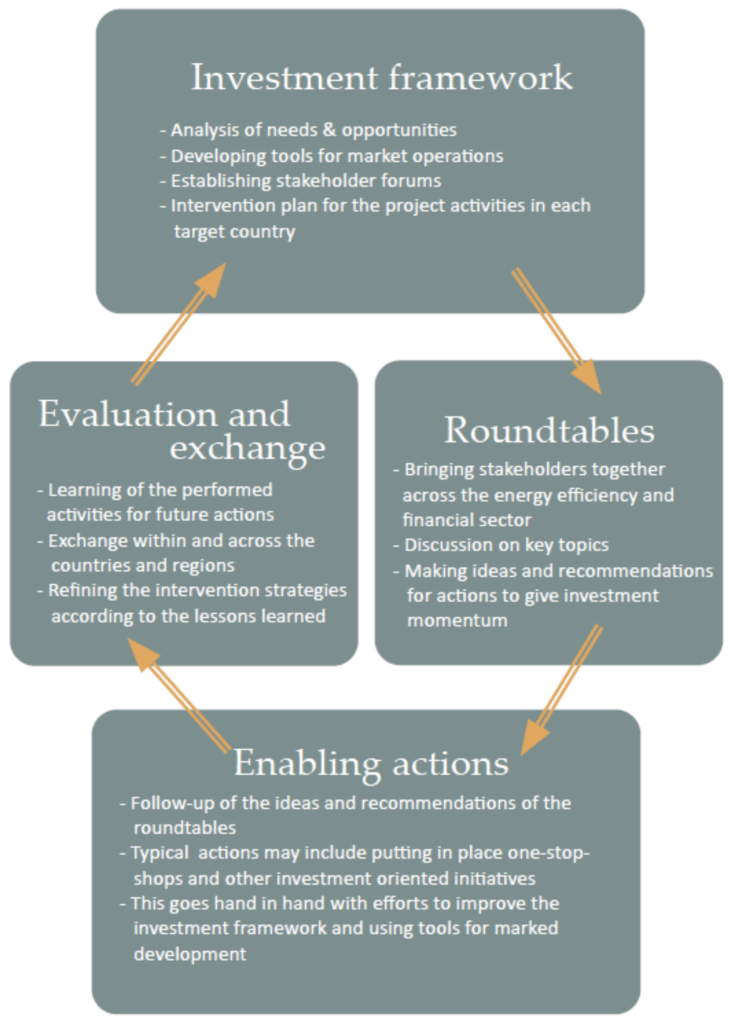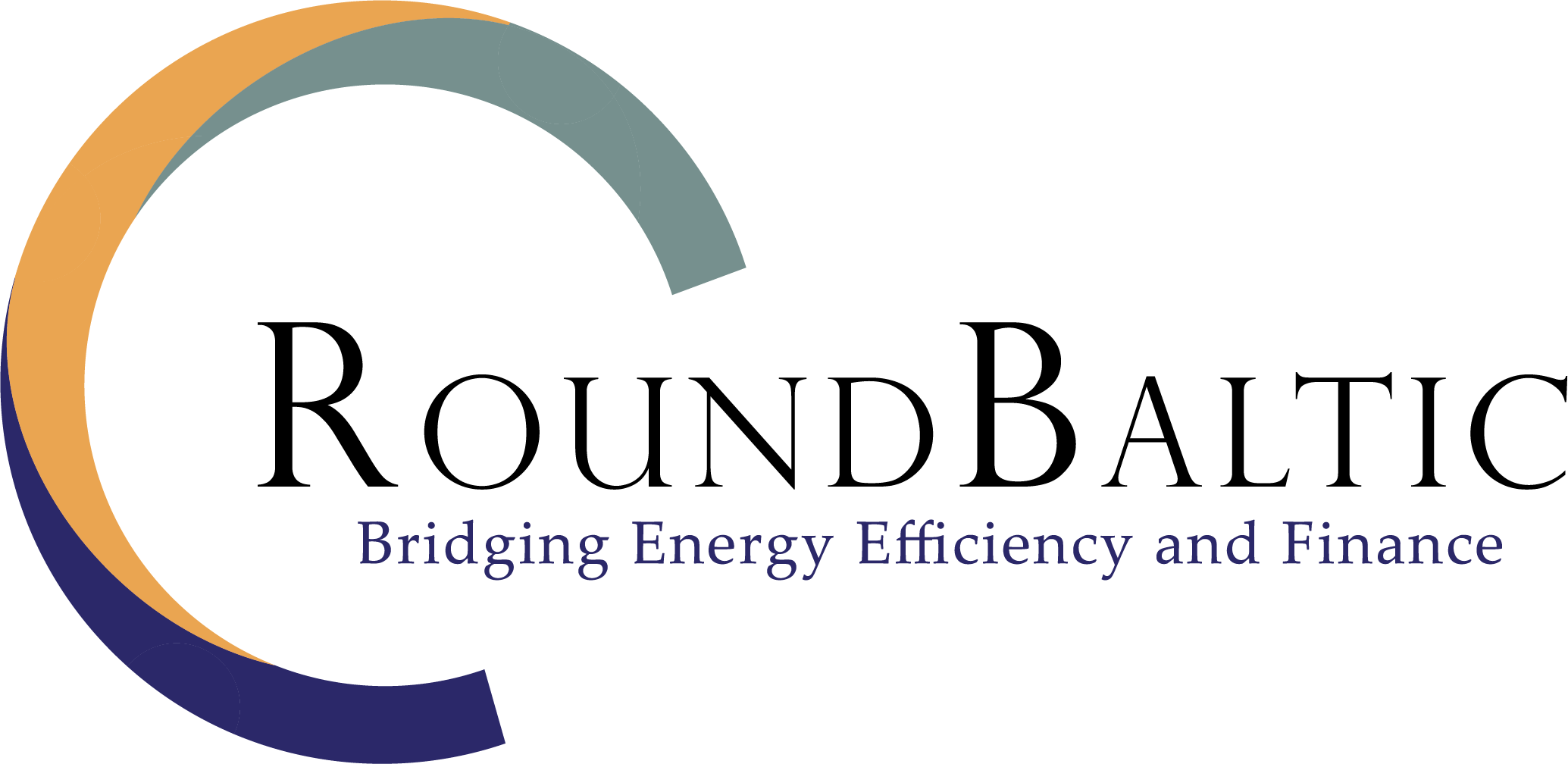Om projektet
Baggrund
The overarching objective of the RoundBaltic project is to support the implementation of the Smart Finance for Smart Buildings (SFSB) initiative in the Baltic Sea Region, notably the project’s direct target countries Poland, Latvia and Denmark.
The three pillars of Smart Finance for Smart Buildings concern:
- Better use of public funds by maximising the use of available public funding via financial instruments, addressing identified market failures and by better targeting grants towards vulnerable consumers. Tailored financing schemes and risk-sharing mechanisms supported from public funds are good for leveraging private investment in sustainable energy.
- Project aggregation and assistance increasing availability of a large-scale pipeline of bankable projects to feed investment platforms and financial instruments. This can be achieved through, among others, project development assistance and promotion of one-stop-shops for project developers.
- De-risking of energy efficiency investment by revealing the real risks and benefits of sustainable energy investments based on market evidence and performance track record, and development of dedicated sustainable energy building financing products.
The RoundBaltic intervention can help to smooth this process and represents a way to find structured solutions for accelerating energy efficiency investments in Poland, Latvia and Denmark. This will happen in interaction with related policy initiatives such as the Green Deal, the Energy Union Governance and associated National Energy and Climate Plans, public funding programmes and EU’s SEI Forums that aim to bridge the energy efficiency and financial sector on broad European scale.


Scope of action
The RoundBaltic project follows a cyclic approach as illustrated in the diagram due to the overall objective of creating a framework and a momentum for energy efficiency investments in the direct target countries Poland, Latvia and Denmark.
SEI Forums bring together representatives of the financial and energy efficiency sectors at roundtables to discuss and find solutions to the challenge of energy efficiency finance. Key focus areas are how to ensure an investment friendly framework along designing of financing instruments in accordance with the EU financial pillars more effective use of public funds, aggregation and project development assistance and derisking.
In dialogue with the stakeholders the intention is to foster ideas and recommendations for specific actions to bring investment momentum. The implementation of these actions will go along efforts to improve the investment framework, adopting tools for market development and learning of the performed
activities for future actions.
